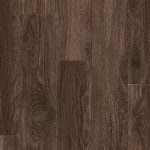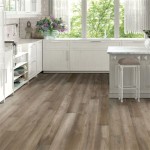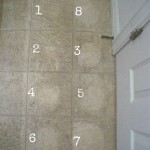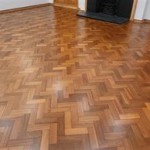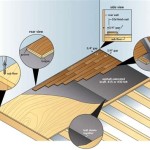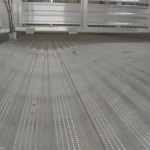Vinyl Flooring Glue Or No Glue: Making The Right Choice
The decision of whether or not to use glue when installing vinyl flooring can be a puzzling one. Both methods have their own set of advantages and disadvantages, so it's crucial to weigh each factor carefully before making a choice. In this article, we will delve into the essential aspects of both glue-down and floating vinyl flooring to help you make an informed decision.
Glue-Down Vinyl Flooring
Glue-down vinyl flooring, as its name suggests, is installed by using adhesive to secure the planks or tiles to the subfloor. This method is often preferred for areas with heavy foot traffic or in commercial settings where durability is paramount. Here are some advantages and disadvantages of glue-down vinyl flooring:
Advantages:
- Improved durability and longevity
- Prevents buckling and movement of planks or tiles
- Suitable for areas with heavy foot traffic
- Can be used in conjunction with radiant floor heating systems
Disadvantages:
- Installation can be more time-consuming and complex
- Removal can be difficult and may require professional assistance
- Not suitable for all subfloor types
- Requires a dry and level subfloor for optimal adhesion
Floating Vinyl Flooring
Floating vinyl flooring, on the other hand, is installed without the use of glue. Instead, the planks or tiles are locked together using a tongue-and-groove system, creating a floating layer over the subfloor. This method is often preferred for DIY installations or in areas where water resistance is a concern. Here are some advantages and disadvantages of floating vinyl flooring:
Advantages:
- Easy and quick to install, making it suitable for DIY projects
- Can be installed over a variety of subfloor types, including uneven surfaces
- Water-resistant, making it ideal for kitchens, bathrooms, and basements
- Can be replaced or repaired easily without damaging the subfloor
Disadvantages:
- May not be as durable as glue-down vinyl flooring
- Can buckle or move over time, especially in areas with heavy foot traffic
- Not suitable for use with radiant floor heating systems
- May require additional underlayment for sound absorption and moisture protection
Which Method Is Right For You?
The choice between glue-down or floating vinyl flooring ultimately depends on your specific needs and preferences. If you are looking for the most durable and long-lasting option, glue-down vinyl flooring is the better choice. However, if you prioritize ease of installation, water resistance, and the ability to replace or repair planks easily, floating vinyl flooring would be more suitable.
It's always advisable to consult with a professional flooring installer for guidance on the best method for your particular project. They can assess your subfloor, foot traffic requirements, and budget to help you make an informed decision.

Luxury Vinyl Flooring Vs Glue Direct Wood

Glue Down Vs Floating Lvp Which Is Better Whole Cabinet Supply

How To Repair Luxury Vinyl Plank Flooring The Palette Muse

Luxury Vinyl Flooring Vs Glue Direct Wood

What S The Best Glue To Use For Vinyl Flooring Sprayidea

How To Install Nucore Flooring Vinyl Wood Luxury

Choosing Vinyl Glue Down Vs Floating Floors In 2024

What Is Loose Lay Vinyl Flooring A Plank Guide Reallyfloors America S Est Hardwood

A Beginner S Guide To Installing Vinyl Plank Flooring Dumpsters Com

How To Choose The Right Adhesive For Your Flooring Type
Related Posts

